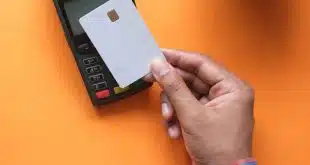Another indication of the increased trafficking of electronic check images through image-exchange networks has emerged with a report from SVPCO that its Image Payments Network handled 50.8 million items in May, up 44.4% from April's volume. Average daily traffic hit 2.3 million images, a 31.2% jump from the previous month. Indeed, volume is climbing so rapidly that SVPCO, a unit of The Clearing House Payments Co. LLC, New York, now forecasts 100 million monthly items by year's end, double the company's 2006 plan forecast. Digital Transactions News reported last month that fast-growing volume was forcing the network to recalculate its 2006 forecast (Digital Transactions News, May 10) “We're pretty bullish, and the trend so far in June looks good,” says George Thomas, executive vice president at The Clearing House. Contributing to rising traffic are the addition of new members to the network and increasing network usage by existing members. Also, some network banks have begun to receive as well as send images. Many large banks involved in image exchange are not yet prepared to receive check images for settlement, forcing banks of first deposit to print costly substitute checks, or printouts of images, for clearing. BB&T Corp., which went live on the network May 5, is receiving as well as sending images, and Bank of America last month began receiving items from the Federal Reserve, which is also hooked into SVPCO's network. With the addition of BB&T, network membership reached 13 banks. At the same time, Wachovia Corp. became the first bank on the network to hit 1 million daily items, SVPCO reported. Thomas says seven more of The Clearing House's 21 owner banks, as well as another five non-owner institutions, should be live on the network by the end of 2006. So far, a dozen of the 21 owner banks are on the network, with Fifth Third Bank accounting for the 13th user. SVPCO also reported that the volume of so-called all-electronic transactions, or those that can be cleared end-to-end as electronic images, also continues to climb. This volume, in which files passing through the network are cleared by paying banks as images, accounted for some 56% of network traffic in May, says Thomas, up from 53% in April. “Every month we increase the volume that stays within the network,” he says. Earlier this year, SVPCO reported that files without IRD instructions had reached 80% of network volume (Digital Transactions News, Feb. 9), but cautioned that items switched out of the network (for example, to the Fed) could still end up as IRDs for settlement. Total dollar value exchanged through the network reached $151.8 billion in May, up 21.1% from April. This represented a per-item value of $2,988, down from $3,560 in April. Per-item value has been steadily declining as banks send more and more consumer checks though the system. In image exchange, banks of first deposit send electronic images of checks, rather than the paper originals, through networks to receiving banks for settlement. In cases where banks aren't equipped to settle on images, the images are converted back into paper as so-called substitute checks, as provided in the Check Clearing Act for the 21st Century (Check 21), which took effect in October 2004.
Check Also
Fiserv Finds a Successor As CEO Bisignano Prepares to Leave
Fiserv Inc. early Thursday announced Michael P. Lyons will take over as chief executive at …




